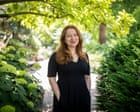Female nonfiction writers arepaid less on average, receive fewer reviews and win fewer prizes than men. Unsurprisingly, this means that women sell fewer books. So far this year, more than 60% of titles on the UK’s hardback and paperback nonfiction bestseller lists have beenby men.
Kate Mosse wants to change this. Famously, she set up the Women’s prize for fiction after there was not a single woman on the 1991 Booker shortlist. This year Ms Mosse’s award celebrates its 30th anniversary. With previous winners including Zadie Smith, Chimamanda Ngozi Adichie and Maggie O’Farrell, it has changed the publishing landscape to the extent that some suggest it is now redundant: last year, five out of the six books on theBooker prize shortlistwere by women, and the winner was Samantha Harvey. Indeed, such is the pre-eminence of female novelists that there is talk of acrisis in men’s fiction, and plans for an independent publisher,Conduit Books, especially for male authors.
Nonfiction publishing, however, is a strikingly different story. Hence Ms Mosse’s latest project: the Women’s prize for nonfiction, which aims to do for female authors of serious narrative nonfiction what has already been achieved with fiction. Last year, Naomi Klein’s quasi-memoirDoppelganger, about conspiracy theories and truth in politics, was the award’s first winner. Last week,The Story of a Heart, by the doctor and writer Rachel Clarke, became the second, with her moving interweaving of the story of two children connected by a heart transplant with the history of heart surgery.
Nonfiction books by women are not the only ones in need of help. With a few notable exceptions (including Prince Harry’s memoir Spare and James Clear’s self-help bestseller Atomic Habits), the overall picture for nonfiction publishing is bleak: last year, specialist and trade nonfiction combined had their lowest sales, in money terms,since 2015. In another blow for the publishing industry, last week aNational Literacy Trustreport revealed that reading for enjoyment among children and young people in the UK is at its lowest level in two decades. Only a quarter of teenage boys said they read books in their free time.
One understandable response to figures like these is to emphasise the value of reading per se. But who and what we read matters as well as whether we do it. Part of the imbalance in nonfiction has been a historical perception of male expertise, particularly on certain topics. As with bias in class and race, publishing has been slow to address this proactively. In her 2021 book,The Authority Gap, examining why women are still taken less seriously than men, Mary Ann Sieghart stresses the importance of encouraging boys to read books about girls, and for men to seek out women’s voices.
There have been many efforts to address such discrimination constructively.Women Also Know Stuff, for example, is a database of experts created with the aim of increasing female representation. “Most women fight wars on two fronts,” Rebecca Solnit wrote in her essayMen Explain Things to Me. “One for whatever the putative topic is and one simply for the right to speak, to have ideas, to be acknowledged to be in possession of facts and truths, to have value.” For the help it offers to female authors fighting such battles, as well as the attention it brings to new books, the Women’s prize for nonfiction should be welcomed.
